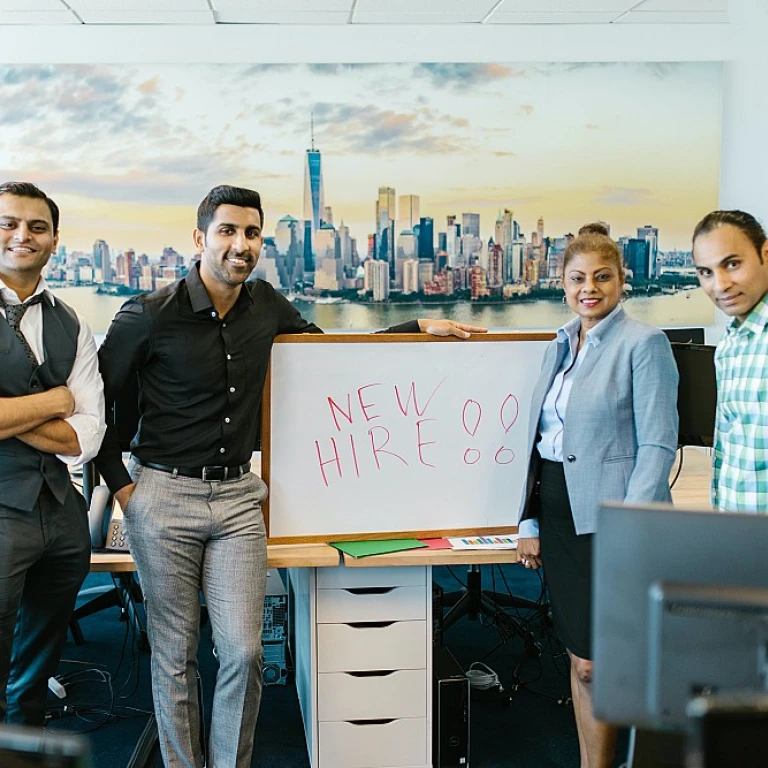Understanding Challenging Employee Types
Identifying the Intricacies of Difficult Employee Personalities
Navigating HR job interviews often involves understanding challenging employee types that can disrupt a cohesive workplace. These individuals, whether overtly overconfident or reservedly silent, can present significant challenges in an interview setting. HR managers and interviewers must be adept at evaluating these personalities, balancing objectivity with empathy, to ensure the right fit for the team. A remarkable challenge lies in identifying and managing difficult employees without bias. It involves acknowledging various personality types, from the passive-aggressive team member to the so-called "negative Nancy" that can drain workplace morale. Awareness and preparation are essential steps in handling these candidates effectively. To mitigate potential issues, setting clear expectations and fostering an environment of effective communication is crucial. This approach ensures the team can work cohesively, minimizing disruption that difficult personalities might cause. Understanding these nuances, coupled with refined leadership and management skills, will help HR professionals steer interviews towards positive outcomes. For more insights on addressing challenging employee types, consider exploring strategies for addressing sales performance questions in HR interviews.The Overconfident Candidate
Recognizing and Managing the Overconfident Candidate
The workplace is a diverse environment teeming with various employee types. Among them, the overconfident candidate often stands out during HR interviews. These individuals may present themselves as ideal employees, exuding a strong sense of self-assurance and capability. However, their behavior can sometimes mask deeper issues related to their work and interaction with team members.
Overconfidence can manifest as a belief in one's superiority over others within the team. This personality type can lead to difficult interactions, resulting in challenging situations that require careful management. To effectively assess such candidates, HR professionals must employ keen observation and understanding of their responses and demeanor.
- Effective Communication: It's crucial to engage in open dialogue, asking probing questions that test not only the candidate's skills but also their ability to integrate into your team environment. Learn how effective questioning can help in uncovering true capabilities.
- Setting Clear Expectations: Clearly communicate the expectations of the position and the organization's cultural norms. This strategy helps in discerning whether the candidate can adapt and collaborate effectively with other team members.
- Identifying Passive Aggressive Tendencies: Pay attention to subtle cues that might indicate passive aggressive behavior. An overconfident candidate might express dissent through non-verbal means, which can disrupt the workplace harmony.
In managing overconfident candidates, balancing objectivity with empathy is essential. By maintaining a calm and professional demeanor, interviewers can better assess whether the candidate's confidence is backed by skills and a positive attitude, or if it conceals a difficult personality.
The Silent Interviewee
Decrypting the Quiet Ones
When assessing employee types in HR interviews, the silent interviewee presents a particular challenge. The reserved nature of this personality type can make the flow of the interview feel like an uphill battle. This difficult employee behavior can test even the most seasoned HR managers. Establishing effective communication with a silent interviewee requires patience and skill. Among the most challenging employee types, their lack of verbal engagement can hinder understanding their capabilities and fitting within a team's work environment. To help tackle such interviews, consider the following approaches:- Set Clear Expectations: Begin the interview by clearly outlining what will be discussed, how long it might take, and what you hope to learn about them. By doing so, you might inspire more open communication.
- Warm Up with Softball Questions: Ease into the interview with questions that don't require in-depth answers. This may help the interviewee to gradually open up.
- Encourage Elaboration: Politely request more information or examples when the interviewee gives short answers. Sometimes a little nudge is required to coax more information from them.
- Gauge Comfort Levels: Pay attention to their body language. If they appear overly anxious, it might be worth considering if the work environment is conducive to them unveiling more about their personality.
- Implement a Feedback Loop: Encouraging feedback in real-time through gentle prompts can keep them engaged without feeling pressured.
The Evasive Responder
Navigating Evasiveness in Candidate Responses
Evasive responders present a unique challenge during HR interviews. These candidates are adept at deflecting questions, providing vague answers, or avoiding the core of what's being asked. Understanding this type of difficult personality is crucial for management and HR professionals who need to assess their suitability for a role effectively. One of the most effective communication strategies to deal with evasive responses is to establish clear expectations from the onset of the interview. By clarifying the significance of direct and honest communication in the work environment, interviewers can gently encourage more straightforward interactions. Setting clear boundaries and building an atmosphere of respect and trust can also help draw out more candid responses from the interviewee. Moreover, remodeling your questioning technique can alleviate evasion. Opt for open-ended questions that require detailed answers, rather than permitting yes or no responses. It’s worth noting that a probing yet empathetic follow-up question can often lead to a more transparent dialogue, allowing the interviewer to assess how the candidate might communicate with team members. Managers should remain vigilant in identifying passive-aggressive tendencies or dodged inquiries, as these behaviors might translate into a candidate who could become a negative influence in team dynamics. An evasive candidate could potentially complicate decision-making processes, hinder leadership effectiveness, or impact other employees' work. HR professionals must remember not to let any one difficult personality type dominate their perception of a candidate. While challenging, it’s vital to balance patience with persistence to see if the applicant is ultimately a great fit for the company culture and team spirit. Evaluating whether a candidate can learn and adapt, rather than merely focusing on their initially evasive responses, can be more telling of their future workplace behavior.The Overly Emotional Applicant
Handling the Intense Emotions
When interviewing individuals with intense emotions, often deemed as dramatic, it's essential to tread carefully. These applicants may outwardly express their feelings in heightened tones, portraying qualities of what one might call a "drama queen". In the realm of HR interviews, this can be perplexing for even the seasoned interviewer. Navigating such exchanges requires a precise blend of understanding and tact. It's important to remember that such behavior may stem from a passion for the role or heightened sensitivity in a high-pressure situation. Here’s how you can effectively manage these challenging emotional cues:- Stay Grounded: Maintain a calm and professional demeanor. This not only ensures a steady pace but also helps to prevent the situation from escalating.
- Identify the Underlying Cause: Intense emotions can often be masking deep-seated concerns or issues. Engage in active listening to better understand what’s fueling their response.
- Set Clear Expectations: From the outset, make the interview structure known. This assists in regulating the flow and ensuring that all facets of the discussion are covered.
- Employ Empathic Communication: Demonstrating empathy while retaining objectivity is crucial. Acknowledge their feelings, so they feel heard, while gently steering the conversation back to its main purpose.
- Skillful Topic Transition: If emotions are running high, adeptly transitioning to another subject can diffuse tension. It can also bring the discussion back to the candidate's potential contributions to the workplace.
Balancing Objectivity and Empathy
Striking the Right Balance in Interviewing
When it comes to navigating interviews with challenging employee types, HR professionals often need to walk a fine line between maintaining objectivity and showing empathy. Understanding the nuanced dynamics at play in the interview setting is crucial for effective management of these interactions, helping ensure candidates are evaluated fairly and comprehensively.
It's important to approach the interview process equipped with clear expectations, identifying the attributes that exemplify a well-rounded candidate while also being cognizant of the potential for difficult personalities to emerge. Interviewers may encounter difficult employees whose behavior ranges from overconfidence to evasive responses or overly emotional reactions. Recognizing these traits without bias or preconceived judgment requires a keen understanding of different personality types.
- Objectivity: Maintaining objectivity involves setting aside personal biases and focusing on the job-related competencies of the candidate. A structured interview process with predefined questions can aid in evaluating their skills and experiences without being swayed by challenging behaviors.
- Empathy: Empathy is essential for understanding the underlying motivations behind challenging behaviors. It can help interviewers appreciate the challenges faced by candidates with difficult personalities while assessing their potential to adapt and thrive within the workplace.
Efficiently balancing these two elements requires practice and awareness. HR managers and leaders can benefit from training that enhances their communication and conflict resolution skills, making them better equipped to handle difficult people. Additionally, maintaining a supportive and open work environment encourages candidates to express themselves more authentically, further assisting interviewers in distinguishing potential drama queens or resistant change types from candidates who simply need guidance.
Efforts to balance objectivity and empathy are not just useful in interviews but are also beneficial to creating a positive work environment post-hire. Developing these skills can facilitate effective communication and leadership, essential for managing a team with diverse personalities and reducing workplace conflicts.



